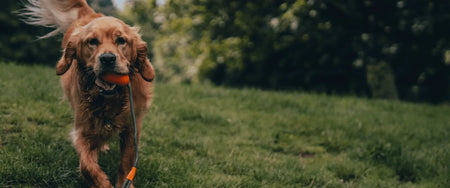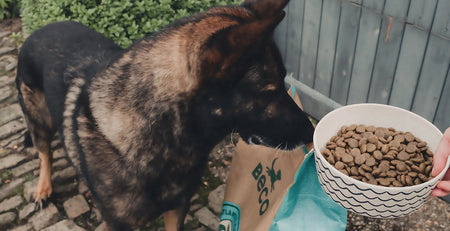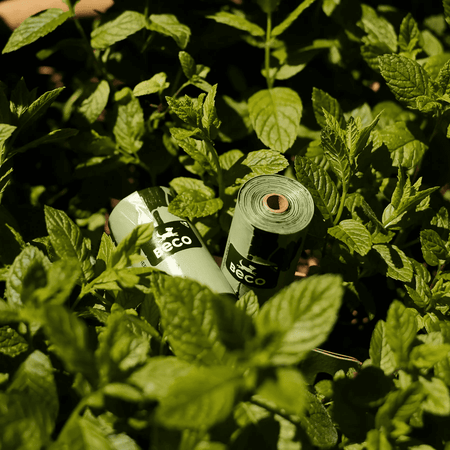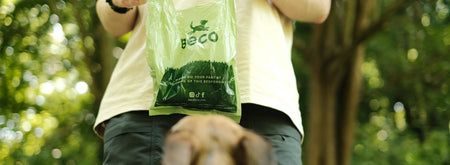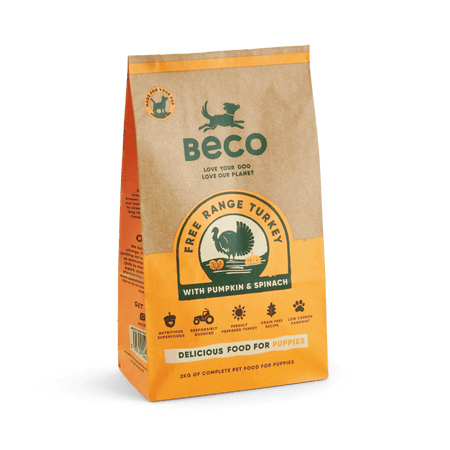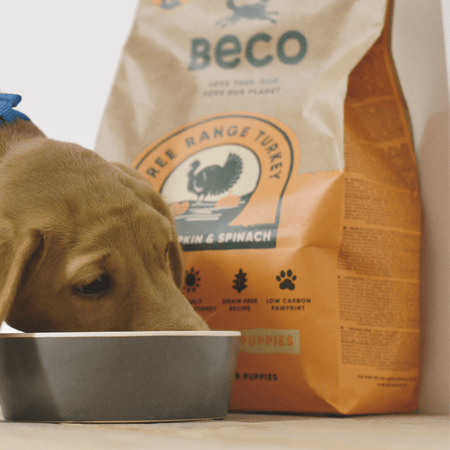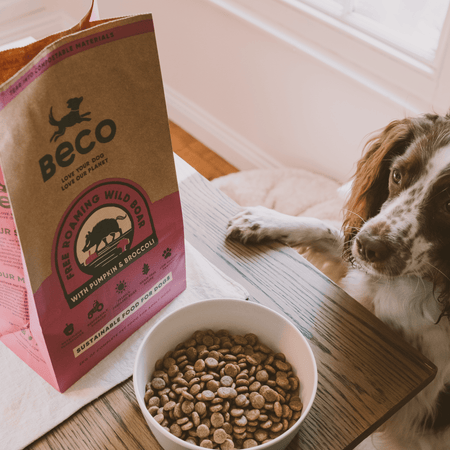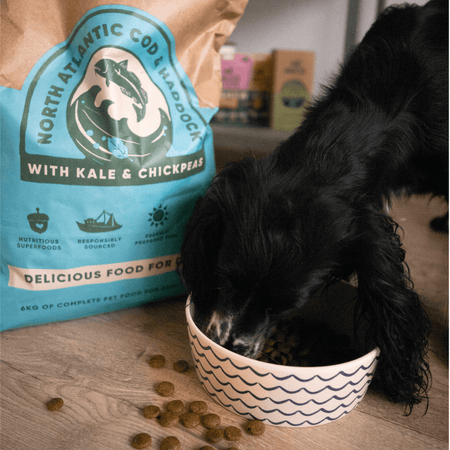Bringing home a new puppy is an exciting journey filled with adorable moments and new responsibilities. One key concern that arises for every puppy parent is the feeding schedule. Ensuring the right feeding time is essential for their growth, health, and overall well-being.
Let's dive into the intricate world of puppy feeding schedules and pinpoint the best times to feed your new furry friend.
Key Summary
- Puppies aged 8 weeks to 4 months should be fed four times a day, reducing to two meals by six months.
- Adjust feeding schedules and quantities based on growth stages and specific breed needs.
- Avoid feeding puppies right before walks, after rigorous play, or close to bedtime for health and comfort.
What are the Best Times to Feed a Puppy?
From the moment your puppy is eight weeks old until they reach the age of four months, feeding them four times a day is ideal. As they grow and hit the four-month milestone, it's recommended to shift to three daily meals.
Once your puppy approaches six months, it's typically best to provide two meals daily – one in the morning and one in the evening, maintaining this regimen throughout their life.
𝐢 The best time to feed your puppy varies with age: initially four times daily until 4 months, then gradually reduce to two meals by six months. Adjust feeding around activity, avoiding right before walks or bedtime.
Puppy Feeding Times Schedule
A consistent feeding schedule is crucial for your puppy's development as it can provide a routine. It can be hard to know what times of day to feed a dog if you need to feed them up to 4 times a day, so here's a breakdown of typical feeding time based on the number of meals:
| Number of Meals | Suggested Times | Reasoning |
|---|---|---|
| 4 meals a day |
7 AM 11AM 3 PM 7 PM |
Provides consistent energy throughout the day during early growth stages. |
| 3 meals a day |
7 AM 12 PM 5 PM |
Suits older puppies who have slightly slower metabolic rates but still need energy. |
| 2 meals a day |
7 AM 6 PM |
Feeding twice a day for adult dogs with stable energy requirements throughout the day. |
Feeding a Puppy By Age
Understanding your puppy's growth stages will help you determine their nutritional needs. The feeding schedule should evolve as your puppy grows and their dietary requirements change.
1-3 months
At this youthful stage, puppies burn energy swiftly due to their playful nature and have nutritional needs similar to those of a human infant. They need plenty of proteins, fats, and calcium to support rapid bone growth and muscle development.
Feeding Schedule: Given their high metabolism, puppies require four meals a day to sustain their energy.
Pro Tip: Make sure to feed them high-quality puppy food that meets UK standards for growth. If possible, continue with the brand and type of food the breeder or shelter was feeding.
4-6 months

While your puppy’s growth rate decreases slightly, their activity levels remain high, demanding substantial energy. As the bones start to form and become more robust, there's a moderate need for calcium. It's also the period when some puppies begin teething.
Feeding Schedule: For 4- 6 month old puppies, it is advisable to transition to three meals daily during this period.
Pro Tip: Ensure that fresh water is always available, especially if you're serving dry kibble. Some puppies might benefit from chew toys at this age due to teething.
7-9 months
As your puppy’s activity levels start to stabilise, you might notice them settling into more predictable patterns. Your puppy’s protein requirement remains consistent, but there's less need for fat compared to their earlier months.
Feeding Schedule: Many puppies transition to two meals a day during this time, mirroring an adult dog's feeding pattern.
Pro Tip: Monitor their weight and ensure they are not becoming overweight, adjusting food quantities as needed.
10-12 months
At this age your puppy will have almost settled into their adult behavior, though bouts of playfulness and energy spikes will still be present. Depending on the breed, your puppy might be approaching or has already reached adulthood. Their nutritional needs begin aligning more with adult dogs than puppies.
Feeding Schedule: Most puppies are consistently on two meals daily by now, however, larger breeds with prolonged growth periods might still benefit from three meals.
Pro Tip: Begin researching when to transition them to adult dog food, as smaller breeds might be ready while larger breeds might need more time.
How Much Should I Feed My Puppy?
The nutritional needs of puppies vary based on their size and growth rate. While the table below provides general guidelines, remember individual requirements can differ. Always observe your puppy's condition and energy levels, and adjust feeding amounts as necessary.
Consulting with your veterinarian will give you the most accurate feeding recommendations for your specific pup, but here is a general guide on how much to feed your puppy:
| Breed Size | Age | Daily Food Intake | Notes |
|---|---|---|---|
| Small Breeds | 1-3 months | 1/2 to 1 cup | Suitable for breeds like Chihuahuas, Toy Poodles, and Dachshunds. |
| Medium Breeds | 1-3 months | 1 to 2 cups | Suitable for breeds like Beagles, Cocker Spaniels, and Border Collies. |
| Large Breeds | 1-3 months | 2 to 4 cups | Suitable for breeds like Golden Retrievers, German Shepherds, and Labradors. |
What Time Should I Not Feed My Puppy?
Choosing the right times to feed your puppy is just as crucial as deciding what and how much to feed. Here's a guide on times you might want to avoid and why:
Before Walks
Feeding right before a walk can cause digestive problems. This can even risk conditions like bloat, especially in susceptible breeds. Wait at least 30 minutes to an hour after feeding before taking your puppy out for a walk to allow digestion time and reduce any potential discomfort.
Immediately After Rigorous Play
Puppies experience a metabolic spike after heavy play. Feeding them immediately can strain their system. It's wise to allow your puppy a cool-down period of 20-30 minutes post-play before feeding them as it ensures they're relaxed and in the right state to digest their food.
Close to Bedtime
Feeding too late can lead to restlessness, making it hard for your puppy to settle down for the night. Moreover, young pups might struggle with bladder control, leading to potential overnight accidents. Schedule the last meal of the day a few hours before bedtime. This approach ensures proper digestion time and contributes to a peaceful night's sleep for both you and your puppy.
Frequently Asked Questions (FAQs)
Should I stick to dry kibble or can I introduce wet food?
While dry kibble is often recommended for puppies due to its nutritional balance and dental benefits, you can introduce wet food in moderation or as advised by your veterinarian. Remember, if you are changing food or introducing a new type then you need to make the transition gradually to avoid upsetting your dog’s stomach.
How do I know if my puppy is allergic to certain foods?
Signs of food allergies include itching, digestive issues, and ear infections. If you suspect an allergy, consult your vet.
What if my puppy skips a meal?
Puppies can occasionally skip a meal, however, if it's a recurring pattern or they show other signs of discomfort, it's essential to visit a vet.
How does my puppy's activity level influence their feeding schedule?
Just as with humans, a more active lifestyle requires more calories for energy. If your puppy is particularly active, they may require a bit more food than a less active pup. Always monitor your puppy's weight and energy levels and adjust feeding amounts as necessary.
When and how should I transition my puppy to adult dog food?
Transitioning to adult dog food typically begins around a puppy's first year, although larger breeds might take longer. Start by mixing a small amount of adult food with the puppy food and gradually increase the adult food amount over a week. This gradual change helps prevent digestive issues.
How much water should my puppy drink daily?
Puppies generally need about half a cup of water every two hours. However, factors like their diet, activity level, and environmental conditions can affect this. Always ensure there's fresh water available, and if you notice any sudden changes in your puppy's water intake, consult with a veterinarian.
Are there any human foods I should avoid giving to my puppy?
Yes, several human foods can be toxic or harmful to dogs. Some of the common ones include chocolate, grapes, raisins, onions, garlic, caffeine, and alcohol. Always be cautious about what your puppy has access to and try to stick to dog-specific treats and foods.
Conclusion
Identifying the best time to feed your puppy is vital for their health and development. From the early days of four meals a day to transitioning to twice-daily feedings, ensuring consistency and the right quantity will support your puppy's growth.
Remember, while the suggestions provided here are based on general guidelines, every puppy is unique. Always consult with a veterinarian to tailor the feeding schedule to your pup's specific needs and monitor their health and well-being.
If you require nutritious food to support your puppy’s growth and development, head to Beco where you’ll find healthy meals and treats perfectly suited to your pooch!










